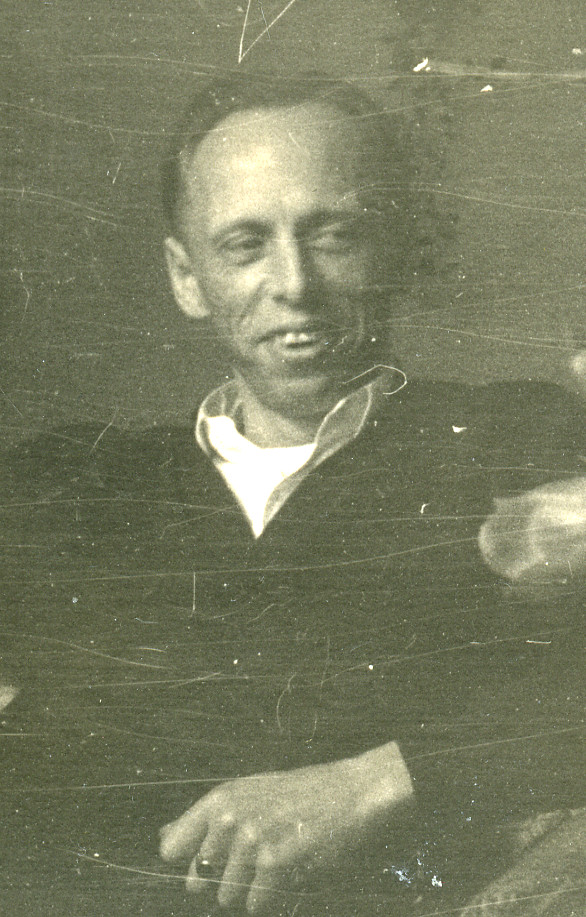
Rein Sepp
Rein Sepp (23. IV 1921 – 25. I 1995) was a translator of ancient Germanic epics, a science-fiction writer and poet.
Sepp was born in Tartu; he spent his childhood on Vingali farm in the village of Ipiķi (Estonian name: Ööbiku) in Latvia (near the border of Estonia and the town of Mõisaküla), studied at H. Treffner’s gymnasium in Tartu from 1929 to 1940, and in the faculty of philosophy at the University of Tartu from 1940 to 1942, mainly Germanic philology and bibliography. In 1942-1943 he worked in the editorial office of the paper Eesti Sõna in Tallinn and later as its agent in Tartu. In 1943 he was mobilized into the German army, initially posted as a staff office clerk in Elva, later as a war correspondent in Narva and elsewhere. After the Red Army’s invasion of Estonia in 1944 he went under cover as one of the guerrillas (the ‘Forest Brothers’) in the swamps of Marimetsa in Läänemaa county; he was granted an amnesty in 1946, and worked at the Saida collective farm in Harjumaa county as a bookkeeper and team leader. From 1949 to 1956 he was imprisoned in Tallinn, Leningrad and Vorkuta on political grounds. From 1957 he was a professional writer in Estonia; from 1971 he lived at the Eglītis farm at Ipiķi in Latvia, where he died. He was buried in the apple orchard of the same farm.
Rein Sepp made his debut in the school magazine Miilang (1938). The short story Viimne üksiklane (‘The Last Hermit’, 1960) and the radio play Gaia peab startima (‘Gaia Must Get Started’, 1962) both represent science fiction. Collections of his poems were compiled and published posthumously – Jälle täht ja jälle värav… (‘Again the Star, Again the Gate’, 2001) and Tähti laotuses lõhkeb naerusui (‘The stars Are Exploding in Space with Laughter’, 2005).
Sepp has become well-known as a translator into Estonian of ancient Germanic epic poetry: The Elder Edda from Old Norse (1970), The Younger Edda (1991), Nibelungenlied (1977), Wolfram von Eschenbach’s Parzifal (1989), Beowulf (1990), and Anglosaksi kroonikad ja poeemid (‘Anglo-Saxon Chronicles and Lays’, 1992). Sepp’s translations of ancient Germanic epics are characterized by his great empathy with his subject.
Rein Sepp also translated F. Schiller’s ‘Poems’ (1959) and ‘Ballads’ (1959), Goethe’s poetry, S. Zweig’s biographical novel Maria Stuart (1970), Werner Bergengruen’s collection of short stories Der Tod von Reval (‘Death in Tallinn’, 1966), and a number of works from Dutch: Theun de Vries’ story De Friese postkoets (‘The Frisian Mail-coach’, 1959), Henriëtte van Eyk’s Gabriel (1960), Arthur van Schendel’s Het fregatschip Johanna Maria (‘The Frigate ‘Johanna Maria’’, 1967), and Multatuli’s novel Max Havelaar (1973). From English Sepp translated Shakespeare’s comedy Love’s Labour’s Lost (1963), as well as poetry by William Blake and others.
A documentary film has been made about Sepp: Teejuht mütologiasse (‘The Road to Mythology’, dir. H. Karis, 1996). To perpetuate his memory the Society of Friends of Rein Sepp has been established at Mõisaküla. On the anniversary of his birth, memorial conferences have been held in Tartu, such as that in 1996 for his 75th, and in 2011 for his 90th birth anniversary.
A. O. (Translated by C. M.)
Books in Estonian
Science Fiction
Viimne üksiklane. Järelsõna: Harry Õiglane. Tallinn: Ajalehtede-Ajakirjade Kirjastus (Loomingu Raamatukogu), 1960, 48 lk.
Gaia peab startima. – Pilk nähtamatusse: valimik kuuldemänge. Koostanud Veronika Kruus. Tallinn: Eesti Raamat, 1969, 342 lk.
Poems
Jälle täht ja jälle värav…. Koostanud ja toimetanud Viljar Ansko. Risti: Anamnesia, 2001, 92 lk.
Tähti laotuses lõhkeb naerusui. Koostanud Anti Lääts ja Anneli Sepp. Tartu: Ilmamaa, 2005, 228 lk.
Selected translations
Nibelungide laul. Järelsõna: Ülo Tedre; illustreerinud A. Hoidre, R. Mäger. Tallinn: Eesti Raamat, 1977, 328 lk.
Wolfram von Eschenbach, Parzival. Illustreerinud Alo Hoidre.
Tallinn: Eesti Raamat, 1989, 158 lk.
Noorem Edda: valik tekste. Järelsõna: Rein Sepp. Tallinn: Eesti Raamat, 1990, 126 lk.
Beowulf. Illustreerinud Eve Kask. Tallinn: Eesti Raamat, 1990, 149 lk.
Anglosaksi kroonikad ja poeemid. Järelsõna: Rein Sepp. Tallinn: Hortus Litterarum, 1992, 152 lk.



